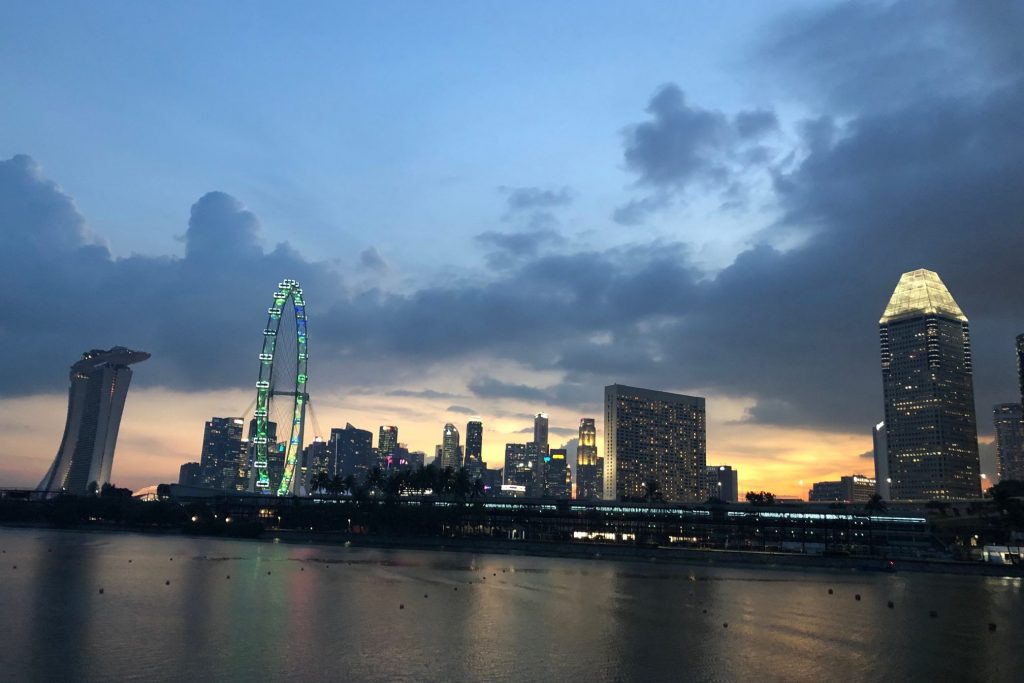Skift Take
A new system that enables the sharing of guest data between hotels and the authorities is meant to increase productivity at hotels. Really? Better communication is needed.
 Some people call Singapore a surveillance state, or a city of sensors. That’s a long way from being dubbed a “fine city” for penalizing people for littering, chewing gum, jaywalking, and a host of other mundane things.
Some people call Singapore a surveillance state, or a city of sensors. That’s a long way from being dubbed a “fine city” for penalizing people for littering, chewing gum, jaywalking, and a host of other mundane things.
You can spot sensors, cameras, and GPS devices in public spaces, although the government says it’s part of its Smart Nation initiatives. A new law on “fake news,” which gives the government the right to order social media sites to put warnings next to posts it deems false, recently came into effect. Now hotels choosing to use facial recognition technology to automate check-ins also have to send guest data to the immigration department.
All this is making Singapore look just a bit more sinister, even though the new system is part of a continued drive to increase productivity in Singapore hotels.
Without a doubt, Singapore hotels need to use technology and improve efficiency as they continue to face a manpower crunch as supply increases, labor decreases, and restrictions on hiring foreign workers remain. Such a scheme as the E-Visitor Authentication, however, has to be handled and communicated properly — which, our report below suggests, hasn’t been the case.
Either way, this won’t make a dent: Tourism continues to grow in the city of censors.
Oops — or rather, sensors.
— Raini Hamdi, Skift Asia Editor, [email protected], @RainiHamdi
Skift Stories and More Expert Insights
Is Singapore’s New Hotel Guest Authentication Just Creepy Surveillance? Self check-in by facial recognition at hotels is unlikely to be an industrywide reality anytime soon in Singapore — and that’s not exactly bad news.
AirAsia.com Starts Selling Competitors’ Flights via Kiwi.com Partnership: It’s finally happened. AirAsia.com is selling other airlines on its website and app. Powered by Kiwi.com, it’s a start. Getting direct contracts with airlines is next. Should online travel agencies continue to doubt AirAsia’s foray into their turf? “Believe the unbelievable,” CEO Tony Fernandes said.
Trip.com Group’s Softer Growth Shows Extent of China Outbound Slowdown: Single-digit growth is something China’s largest online travel company isn’t used to, but that may just happen in the fourth quarter. Growth has already softened in the third.
Airbnb Signs 9-Year Sponsorship Deal With Olympics Ahead of Tokyo Games: That Airbnb chose the Olympic Games for its first-ever global sponsorship deal makes sense — the event both aligns with the brand’s ethos and will be a boon for its bottom line as it aims to go public in 2020.
Expedia’s Vrbo to Reposition Itself Beyond Vacation Rentals as a Family Travel Business: In a very crowded and highly competitive short-term rental field, it makes sense that Expedia Group’s Vrbo would try to stand out, albeit as a travel business serving families. Why go after the backpackers and younger generation when that isn’t your core customer anyway?
Travelio Raises $18 Million for Extended Stay Booking: Travel Startup Funding: Travel startups Travelio, Refundit, and Nowaday together announced more than $33 million in funding. Of particular note is Amadeus’ backing of Refundit. The startup offers visitors to European Union countries a mobile app to speed up their claims for rebates for value-added taxes paid on retail shopping.
Asia Editor Raini Hamdi [[email protected]] curates the Skift Asia Weekly newsletter. Skift emails the newsletter every Wednesday.
The Daily Newsletter
Our daily coverage of the global travel industry. Written by editors and analysts from across Skift’s brands.
Have a confidential tip for Skift? Get in touch
Tags: airasia, airbnb, japan, singapore, skift asia weekly, trip.com, vrbo
Photo credit: Singapore is seeing more arrivals despite surveillance. Hotels that use facial recognition technology to automate check-ins now have to send guest data to the immigration department. Raini Hamdi / Skift
